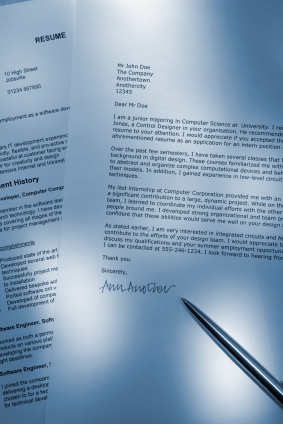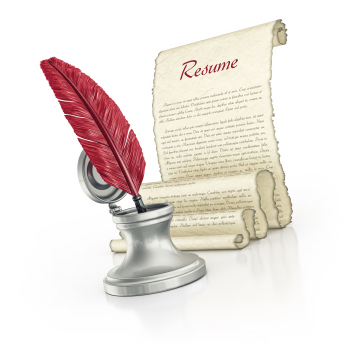
Having many interviews with nothing to show for it can be one of the most frustrating things to have to go through. You’re so close to getting a job offer but it just never materializes. If you can get interviews then there’s probably nothing wrong with your job-hunting strategy, your resume or cover letter. The problem could be related to your interviewing prowess or maybe even your references.
You might need to take some time and evaluate your job interviewing process – from everything to your preparation to following up. How much effort do you put into preparing for your job interviews? Do you do your research before the interview and review questions that you might be asked? Your interviewing skills are important, you have to make a good impression when you first meet the interviewer. You have to have a solid connection – with a strong handshake, solid eye contact, and an inviting smile.
One thing to do is bring in samples of your previous work. A portfolio, with supporting documentation, is an excellent way to sell yourself to an interviewer. Make sure to ask questions about the company and the position, you have to be interested in the position or it will show through to the interviewer. There is a lot of gray area when interviewing. You don’t want to overstep your bounds but you also want to show that you have a personality to match your resume. What about after the interview? Do you thank the interviewer or send out a thank you letter afterwards? Following up was once the key to landing a job – now there are many different factors at play.
There are companies that will call all of your references and there are some that will not think twice to hire your without references. If you think your references are holding you back from finding a job, then evaluate your references and see how you can beef them up. Make sure that you ask someone before you put them down as a reference, the last thing you want is having a supervisor from 3 years ago get a call about you and have no idea who you were. If you have references that are not related to the job you’re applying for, you need to update them to match your desired position. Many of these companies will not hire someone if they have old references or if their references don’t match the desired position. Having your McDonalds manager from college as a reference will probably not do much for you when you’re trying to get that CPA job.
Be smart about your references and only use the ones that will benefit you the most. Think about who’s on your references; would any of them have a difficult time explaining you or your past duties? Your references may be holding you back, so evaluate them and see if you can come up with references who will make you shine.
The Necessity of Professional Cover Letters
BlogCover LettersJob SearchProfessional ResumesResume KeywordsResume WritingResumes

Many job seekers stress over cover letters more than they do their own resumes. It may surprise some, besides cover letters are typically a one-page preface to your intricately prepared resume. But, the truth is, that your resume may look dull without a good cover letter to introduce it. Cover letters introduce you to HR managers and set the tone for how your resume will be received. You can have a perfect resume, but if the cover letter is not well done, then your resume will not get the type of attention it deserves. Everyone looking for a job should have a professional cover letter and resume in order to find the career that’s right for them.
When you first enter the job market (most of us at around 21 years of age) don’t know how important cover letters are for you, much less how to write one that sells you. Many people are not aware of the benefits that a simple, well-crafted cover letter to a prospective employer can have. They introduce you to your prospective employer, but also they give a glimpse of your personality.
Just a few weeks into your job search, you will realize that a well-crafted cover letter is not an option, it’s a necessity. Through the support of a professional resume and cover letter writer, you can finally have the cover letter that sells your individual personality and traits. If you have a cover letter, it could always use another eye on it in order to see where you can make changes or additions. You want to sell yourself in your cover letter, your resume speaks to what type of experience and qualifications you have, that’s why it’s important to have a cover letter that sets you apart.
But, just having one is usually not enough. After a few weeks or months of unanswered applications and fruitless job searches, you begin to come to a final conclusion.
When you, or your cover letter writer, writes your first letter, the primary focus is on presentation and the format. How long should the cover letter be? Where to assign the date? What type of font is right for my cover letter? But, throughout you want to focus on one thing – quality content. If your cover letter is full of buzz words or just inane babble, then it’s not worth the paper it’s printed on.
It’s always important to remember, before you start writing, that content is king. It’s fairly easy to lose sight of what’s important and lose focus instead of paying attention to what’s important. That doesn’t mean that there are not guidelines to follow, but your cover letter writer can help you deal with the details. You do not want to have spelling or grammatical errors in your cover letter. That’s an instant turn off to any prospective employer. Remember that the main point of your cover letter is to get noticed and sell yourself.
Constructing a Resume That Sells You
BlogCareer & WorkplaceExecutive ResumesJob SearchProfessional ResumesResume KeywordsResume WritingResumesSuccess Strategies

Some people think that resumes are nothing more than a list of your accomplishments, the jobs you’ve had, and the number of places you’ve worked. But, it’s not that easy to construct a resume that markets you to your prospective employer. A resume should be designed to sell you and your potential to an employer. That means that you have to make decisions about how to present your traits.
A resume has to be like an advertisement, it needs to catch the reader’s eye and meet their particular needs. If you’re applying for an accounting job, then you wouldn’t need to showcase your creative writing talents on your resume. You would need to show that you have the skills required to perform the duties of the position at a high level. That doesn’t mean putting everything you’ve ever done on your resume, it just means you have to understand your market and how to reach them. Make sure you put your best foot forward.
Look over your work history and pick the selling points that best highlight your value. Depending on the position, you should highlight specific skills that you have. Deciding what makes the most unique selling points can be the hardest part of writing a resume. Here are five basic steps to help design a resume that markets your skills to employers:
1. Choose the most relevant information first. Focus on the skills and experience that are most important to the job you’re applying for. You may have a whole range of skills, but focus on the ones that are most important for your particular employer. Even if you’re qualified based on past experience, don’t put all of your eggs in one basket. Instead, make sure that you focus on the skills that are going to set you apart from other potential employees.
2. Showcase the cutting edge, without too much emphasis on the outdated. More experienced workers should focus heavily on this. Any professional should continue to update their resume with new talents and show that they can adapt to new challenges. You may know the beginnings of C+ language, but it will help if you know Flash or Linux.
3. Tangible examples are best. Be specific as possible and use tangible evidence of improvements if you can. Just saying that you have an excellent track record of improving sales doesn’t show much, you need to show actual figures.
4. Use multiple resumes to market yourself in a different manner. If you’re applying for several different types of positions or in different industries, you need to have a resume suited to that profession. So create several different resumes that highlight your skills for that particular position.
5. Get a second opinion. This is perhaps the most important thing you can do. It can be hard to be objective about your career. Give your resume to a friend or a family member, or if you have someone in your industry – even better.
What Separates Good Resumes from Bad Resumes?
BlogCareer & WorkplaceExecutive ResumesJob SearchProfessional ResumesResume KeywordsResume Writing

Resumes mean so much to hiring managers. It’s your first introduction to a prospective employer and it’s how you differentiate yourself. But what separates the bad resumes from the good ones?
The best resumes avoid abbreviations. Abbreviations are not professional nor are they accepted. Nothing makes HR managers cringe more than seeing sentences like the following: “Answered the phone and went 2 C clients” (yes, I truly have seen this). It may be the information age but this is not a text message so don’t treat it as such.
Giving up too much personal information is a no-no. You should leave off anything related to hobbies or interests that are not related to the job. Do not include your weight and height unless you’re applying for a position as a gym trainer. If it’s not related to the job in any way, do not include it on your resume. Leave out your illnesses or why you took off 2 years to care for a dying parent. As hard as that may have been, it will count against you.
The best resumes are the best because they’re not being used as an art canvas. If you try to stand out by having large graphics on your resume it’s a bad move, because this will give you an unprofessional and amateurish looking resume. Your prospective employer only wants to see your skills, your duties and achievements. You’re not going to get anywhere by having a Word Art picture of a snail on your resume.
Keep the negativity to yourself. The best resumes are neutral in tone or highlight the best attributes of the applicant. But, if you have information on your resume that is negative, such as, leaving your previous employer because you did not like the boss, just keep that part to yourself. Do not try to explain the situation on your resume. That’s an impossible battle that you should not fight. Your resume’s job is to sell and promote you. So don’t eliminate yourself because you were negative.
Good resumes include dates. Do not make an HR manager have to guess. This kills your resume on the spot. You have to include dates. What years were you in college, did you attend graduate school or did you graduate from a trade school? How long have you been working at your current position? Do not make the hiring manager have to ask questions about your resume. The second they have to guess, your resume is going straight to the trash. Make sure your resume flows easily and there are no date gaps. If you took a year off to go travel or to go back to school, include this on your resume.
Bad resumes do not highlight achievements. Many people will fill their resumes with irrelevant information, but they leave off the most important part of the resume – focusing on their achievements. You want to stand out from other applicants, so how can you do that if you do not showcase what you’ve done. Explaining your past accomplishments means that the HR manager can see what you’ve done and know how you can fill their need. If you have the abilities, you need to showcase them on your resume.
Targeting Your Resume to Get the Results You Want
BlogCareer & WorkplaceExecutive ResumesJob SearchProfessional ResumesResume KeywordsResume WritingResumes

Even if you have an excellent resume, it still may not be targeted to find the right kind of work for you. What can you do to increase the number of responses you get from employers?
Customization is Key!
Blasting your resume out for every position you see won’t help you find the right job. If you want to grab an HR manager’s attention, you need to give them what they are looking for. You need to take the time to customize your resume for each employer and highlight your strengths that will set you apart.
Before you respond to a job posting, look over the job description and see what the credentials are. If you submit your application to a company that does not post the requirements, then look around at other similar positions. Odds are that you can find similar information that will allow you to tailor your resume. Once you’ve found your qualifications, you will be at the right place to meet that employer’s specifications.
The most convenient way to customize your resume is to create a master resume and then tweak it depending on each individual job’s requirements. If you want to tweak your resume, then try these steps:
Copy the Master Resume
Find the resume that is right for you to begin with-you don’t want to use your resume that is based on your pre-job experience qualifications, so find one that is current enough for you to tweak it accordingly. Now you’re ready to customize your resume for whatever position you’re applying for.
Start with the Title
Start with your stated career goal, along with two or three of your top credentials. You need to tailor these credentials to your specific employer’s job requirements. For example: “Advertising Manager – Advertising Degree with 10 Years Experience in an Agency.”
Examine your Objective
You need to show that you are perfectly capable of handling this job’s requirements. Create a precise, short resume objective instead of a blanket statement that would work with any job. If your goal is to be the “Chief of Software Development for Bank of America’s online data privacy support,” then it will show the HR manager that you have real, honest goals. It also makes you more attractive to their specific needs.
Summary of Qualifications
Once you have an outline of the job’s requirements, you can begin to tweak your qualifications to match those in the the position you are seeking. If you handle this step correctly and match up with what the company’s needs, you will become the number one candidate. Add some information that is uniquely applicable to your desired position. You have to stand out.
Expand your Job Descriptions
A lot of HR managers will go straight to the prospect’s employment history to assess their qualifications. Review your listed job descriptions and see how you can modify them to more accurately reflect your past experiences. You’ve probably done some of the functions at a previous employer that will be applicable to the current HR manager. Place the most compelling qualifications at the top of the description and make sure they stand out.
Don’t leave out the Skills
Once you’ve found the right job for you, look at the required skills on the job posting and match what the job requires with your skills. Place the skills that would be most beneficial to your prospective employer at the top of the skills section.
Top 5 Ways to Increase Your Chances of Finding Employment
Career & WorkplaceCover LettersJob SearchNetworkingProfessional ResumesResumes

When you’re out of work, you need to use every advantage you can think of to increase your chances of finding a job. With today’s fluctuating job market, there are more people applying for the leftover jobs than there are jobs available. This makes finding a job incredibly difficult. Of course there are some things you can do to help improve your chances of finding a job.
Make finding a job a full-time job
- If you are looking for a job, then you probably spend most of your time looking for a new job. While you’re looking, it can become tempting to watch TV or browse the internet. But, instead set a schedule for yourself and follow it. Every day your schedule should reflect your job-hunting efforts.
Start working on your resume
- You need a resume that will stand out above the mass of people applying. The average hiring manager spends between 10-20 seconds reviewing a resume, so it has to be eye catching to get noticed. You want to have more than one resume when applying for jobs, so it helps to have professional resume writers review your resume and make needed changes. Depending on the job you’re looking for, you will need to highlight different aspects of yourself on your resumes. Professionals are great at creating different resumes for every client.
Don’t skimp on the cover letter
- Think of the cover letter as a quick handshake introduction to a prospective employer. Your cover letter should be unique to the job you are applying for – don’t send out a cover letter addressed to “Sir or Madam”, you want it to be personal and show that you put some effort into the process. Highlight your skills that will set you apart from other prospects, and never, ever use a generic cover letter. HR managers can spot those a mile away.
Get your networking on
- Networking is a great resource for professionals seeking employment. With websites like LinkedIn and Facebook, you can connect directly with people in your industry, in the area that you wish to find employment. Let people know that you are looking for a job–there’s no shame in asking if someone is hiring. Other professionals can often connect you with HR managers when your skills are qualified. But, you need to do more than just network online, get out and go to some networking clubs or events. You can meet more people over a drink than you can with blasting out your resume to Facebook friends.
Start expanding your search
- Sending out resumes in one industry may have worked in the past, but that’s simple not the case, today you have to be well versed in many different fields. You never know what your next platform for success will be. If you have experience in marketing, then your next career may be in sales or advertising. Just try to branch out and see what’s out there.


In this new digital age, more and more employers are turning to the Internet for their hiring needs. Whether posting open positions on a company owned website, utilizing job boards or social media, job seekers are becoming increasingly aware of the importance of understanding how to post resumes online. Because of the various formats that are needed, developing a strong portfolio of resumes is critical for those hoping to find the perfect new job.
Take a minute to consider the different forms of resumes. Electronic, print, plain text and full HTML are the most popular options. The reasons for the various forms are simple: prospective employers use a variety of tools to collect and collate resumes. Deciding which is appropriate and properly formatting it is critical for success.
The traditional print resume (like Microsoft Word, for example) often doesn’t translate well online. Because of this job seekers are encouraged to develop a variety of electronic formats for their resume.
- Text: A simple text resume that focuses less on fancy formatting and more on presenting clear details is a must. Resume writers also call this an ASCII (American Standard Code for Information Interchange). This format is ideal for posting resumes into formats on websites. While it is still important to review the post, sticking with a clean text format often removes many of the formatting issues seen.
- Email: Even more basic than the text format, creating an email ready resume takes into consideration line spacing rules often imposed by email providers. Often a simple matter of tweaking a copy of the text resume, creating an email ready version allows you to post your resume directly in the body of an email.
- HTML: As more and more people turn to the Internet for their business needs, many are creating HTML resumes. This is perfect for those that wish to create an electronic portfolio of their work. A word of caution: providing too much information is an easy pitfall of the HTML resume as is simply creating a flashy version of your resume. Only utilize the HTML format if you have basic HTML knowledge.
It is important to acknowledge that where you post your resume online is almost as important as the format it takes. While it may seem like a good idea to attach your resume to a personal website or social media profile, remember that doing so gives potential employers access to all sorts of information that is often best kept private. Marital status, past health issues, ethnicity, political leanings and more can often be found directly on a personal website. It is best to avoid giving potential employers access to this information too early in the process.
In a world where technology is quickly becoming a necessity, not understanding the basic differences in formats is a big mistake. A poorly formatted resume can make you look disinterested and technologically inept. Be sure to spend the appropriate amount of tie developing resume formats to ensure your resume makes the statement you want it to.
Looking for a Job During the Holidays: A Survivor's Guide
Career CollectiveJob SearchNetworkingProfessional ResumesResume WritingSocial Marketing/Online Branding

Many job seekers erroneously believe that searching for a job during the holiday season is a waste of time. Nothing could be further from the truth. In fact, the holiday season, the time between Thanksgiving and the New Year, is often one of the best times to look for a new job. This is true for several reasons. First, there is often less competition because so many job seekers suspend their job search during these months. Second, corporations with hiring budgets are often looking to ‘spend off’ their remaining budgets, making it easier to find an ideal position. The key is utilizing unique opportunities available to job seekers during the holiday season and remaining positive.
For those looking for a job during the holiday’s, the following tips should be carefully reviewed and considered as part of their ‘survival guide’:
- Remain upbeat: Those that have been searching for a new position for an extended period of time often find their mood flagging during the holiday season. Depression can quickly lead to wasted job seeking opportunities, so be sure to remain positive. If needed, create a schedule for yourself, providing at least one job-seeking task each day. Remember to treat your job search like it is a job in itself.
- Use holiday parties to network: You never know where the next opportunity will come from, and holiday parties offer the perfect opportunity to network and increase your visibility. Whether attending family parties or industry events, put on your best face, be positive and network. Holiday parties are the best opportunity for networking around.
- Holiday greetings: While the old ‘Merry Christmas’ cards are considered politically incorrect, Holiday Greeting cards offer the perfect opportunity to reconnect with industry contacts or potential employers. Be sure to include your business card or contact information in the card to fully take advantage of this opportunity.
- Regularly review postings: Remember that as the year comes to a close, many businesses are struggling to fill open positions before their budget ‘resets.’ Keep checking classified ads and online listings and keep in close contact with your headhunter to ensure that you don’t miss any opportunities.
- Consider seasonal work: While seasonal work isn’t the ideal opportunity, especially for those looking for executive positions, sometimes taking a seasonal position can be beneficial. The act of working again can do wonders for depression and if you are lucky enough to land a seasonal position in your field or industry, help keep your name visible. Oh, and might I add one very important thing: DISCOUNTS.
Don’t use the holiday season as an excuse to forgo your job seeking activities. Instead, try to remember that the months in-between Thanksgiving and the New Year can offer plum employment opportunities. Use your survival guide to take advantage of the unique opportunities the holiday season can present.
Above all, remain committed to your job seeking activities. Failing to do so during the holidays can quickly ruin any momentum you currently have.
